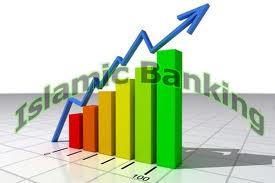Islamic banking has been defined in a number of ways.
The definition of Islamic bank, as approved by the General Secretariat of the OIC, is stated in the following manner. “An Islamic bank is a financial institution whose status, rules and procedures expressly state its commitment to the principle of Islamic Shariah and to the banning of the receipt and payment of interest on any of its operations”(Ali & Sarkar 1995, pp.20-25).
Shawki Ismail Shehta viewing the concept from the perspective of an Islamic economy and the prospective role to be played by an Islamic bank therein opines: “It is, therefore, natural and, indeed, imperative for an Islamic bank to incorporate in its functions and practices commercial investment and social activities, as an institution designed to promote the civilized mission of an Islamic economy” (Ibid).
Ziauddin Ahmed says, “Islamic banking is essentially a normative concept and could be defined as conduct of banking in consonance with the ethos of the value system of Islam” (Ibid).
It appears from the above definitions that Islamic banking is systems of financial intermediation that avoids receipt and payment of interest in its transactions and conducts its operations in a way that it helps achieve the objectives of an Islamic economy. Alternatively, this is a banking system whose operation is based on Islamic principles of transactions of which profit and loss sharing (PLS) is a major feature, ensuring justice and equity in the economy. That is why Islamic bank are often knows as PLS bank.
For an expanding economy, a developed and efficient banking system is indispensable. Among others, it helps transfer of financial resources from surplus units to deficit units and, hence, helps accelerate the pace of development by securing uninterrupted supply of financial resources to people engaged in numerous economic activities. The tremendous development that the world economy has experienced in the last few decades was contributed by several factors among which, growing institutional supply of loan able funds must have played the pivotal role. The role of banking is comparable to what an artery system does in the human body. Both commercial banks and other development financial institutions provide short-, medium-, and long-term credits to businesspersons and entrepreneurs who usually take the lead in ventures of economic development.
Institutional supply of credit has been made possible by a system of financial inter-mediation organized in a way where conventional banks collect small savings from the public by offering them a fixed rate of interest and advancing the loan able funds out of the deposited money to enterprising clients charging relatively higher rates of interest. The margin between these two rates is the bank’s income. In addition, banks also provide many other services to the public for which it receives service charges.
Despite the outstanding contribution of the conventional banking system (interest-based), several ancient and modern economists are critical about its efficiency level. Some economists consider the role of interest in the conventional banking mechanism as a major negative factor that contributes to cyclical fluctuations in the economy (Minsky 1982). Specifically, the ineffectiveness of interest rate as a stabilization tool during the period of the Great Depression is a case to note. This eventually called for Keynesian prescription of government intervention (Keynes 1964). Similar concern was expressed in a story published in Newsweek regarding Henry Kissinger, the former Secretary of State of USA.
To quote, “The instability has persisted and the uncertainty has continued. After going through the throes of painfully high levels of inflation, the world economy has experienced a deep recession and unprecedented rate of unemployment, complicated further by high level of real interest rates and unhealthy exchange rate fluctuations” (Newsweek 1983). More recent concern over the potential instability of the world monetary and financial system was expressed by Maurice Allais, a Nobel Laureate, who called for an urgent reform of the World Economic Order (Allais 1993, pp.13-16). Others vehemently oppose the argument for using rate of interest as a stabilizing tool in the economy (Saud 1980, p.88). This called for the emergence of a new system of banking capable of tackling new challenges that the present world economy, particularly the financial sector, has been facing. In response, though not exactly to that exigency but for quite a few other reasons, the second half of the twentieth century witnessed a distinctly separate line of thinking on banking. This was institutionalized at the end of third quarter and subsequently emerged as a new system of banking called Islamic Banking {also called Profit-Loss-Sharing Banking (PLS)}. The world has now been experiencing operation of as many as 250 Islamic banks and financial institutions in more than 50 countries, Muslim and non-Muslim.
There are religious as well as economic reasons, which have contributed to the emergence of PLS-banking as an alternative to its conventional counterpart. It is the prohibition of ‘Riba’ in the Quran that, according to the proponents of the PLS-system, was the source of inspiration for establishing banks in line with Islamic Shariah (Muslehuddin 1987, pp.24-27). The basic intention behind establishing Islamic banks was the desire of Muslims to reorganize their financial activities in a way that do not contradict the principles of Shariah and enable them to conduct their financial transactions without indulging into Riba (Ahmad 1992). These writers consider rate of interest in the conventional banking mechanism synonymous to Riba, the term as used in the Quran [2:275; 30:39]. One of the reasons for this is that the outcome of the productive effort is uncertain, and so interest necessarily involves an element of Gharar, that is, uncertainty (Chapra 1985, p.64). On this religious ground, proponents of the PLS-system urge the Islamic community to avoid all transactions with institutions that are interest-based.
The economic reason derived from a verse of the Quran providing inspiration to devise an interest-free financial system has been substantiated in the way that interest, instead of increasing wealth, reduces it [30:34]. The primary reason of why the Quran has taken such a hard approach towards interest is that Islam stands for establishing a just economic system free from all kinds of exploitation (Chapra 1985). Further, Muslim economists consider depression and stagflation very often found in the capitalist world as an outcome of the financial system based on interest (Rahman 1976).
















